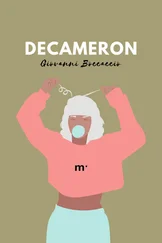“It’s segregation that doesn’t make any sense.” Harriet said this softly. A part of her hoped that Patty hadn’t heard it. The words were provocative.
“I just know you weren’t always this way,” said Patty.
“You mean before I married ‘the Jew’?”
“I didn’t say that.”
The bus pulled up to a stop. The front doors opened and an old black woman drew herself up with difficulty onto the bottom step and then, gripping the horizontal bar to her right, hoisted her frail body up onto the raised floor of the bus. The process of boarding was labored and protracted. At no point did the bus driver offer a hand of assistance.
“Good for her, taking the bus,” mumbled Patty. “At least there are a few sensible colored folk left in this town.”
The old woman paid her fare. Then she turned away from the driver.
“Don’t make her—” said Harriet almost inaudibly, the words intended for the bus driver but only in apostrophe.
Dismounting the bus seemed to be equally difficult for the woman since there was a big drop-off between the floor and the bottom step and another drop-off from the step to the ground, and she would have to try very hard not to lose her delicate balance and fall. “Hurry up or I’ll leave you,” said the bus driver, poking at his teeth with a toothpick.
Once upon the street — for the bus driver had left the woman too much room to step easily down upon the sidewalk — the woman scurried to the rear door, which the driver had opened for her. This was the rule for the black passengers of Montgomery’s city buses. They were expected first to enter the bus through the front door to pay their fare, then exit the bus and re-enter through the rear door to take their seats. It respected the long-observed custom of black servants only being permitted to enter the house where they worked through the rear or side kitchen door.
The old woman now struggled to pull herself up the bus’s back steps. The driver revved his engine. Harriet rose from her seat and went to help the old woman. Once on board, the woman took a seat in the next-to-back row. Harriet returned to her seat next to Patty. There were now three passengers on the bus: Harriet and Patty in the first row of the forward-facing seats, and there in the back, an old black woman who, for whatever her personal reason, found it necessary to ignore the boycott and take the bus on this particular day.
Harriet turned to make sure that the woman was comfortably settled into her seat. Although the old woman had thanked Harriet at the time of her assistance, she now thanked her again with a grateful smile.
“I was afraid that he was going to leave her,” said Harriet to her friend Patty.
“What?”
“The bus driver. Sometimes they take a colored passenger’s money, and then while the person’s walking around to the back door, the driver pulls away.
“I don’t believe they do that,” snapped Patty. “But if they do, it’s wrong, and they should be reprimanded.”
“Considering the fact that very few Negroes are riding the bus this week, the drivers should let those who do sit in the front.”
“That would be against the law.”
“It isn’t against the law, Patty. Drivers can implement segregation on their buses any way they see fit. And I feel sufficiently segregated from any black person who might like to sit in that front seat.” Harriet pointed to the side seat just behind the driver.
“You’re being ridiculous, Harriet. Is this what you and Abe talk about every night over dinner?”
“Yes, Patty. We talk about injustice. And what do you and Roland talk about — I mean, when he isn’t watching Nat King Cole on television?”
“Roland doesn’t like — well, aren’t you funny and clever? I can safely predict that tonight Roland and I will be talking about how you’ve started driving colored maids all over town like Montgomery’s very own Eleanor Roosevelt. He’ll get a kick out of that.”
Harriet didn’t respond. It was almost Christmas and her attention was suddenly captured by a Salvation Army Santa Claus standing on a street corner shaking his bell. The very white Santa was using his other hand to pat the head of a little colored girl who, it appeared, had just dropped a coin into his pail. The scene defused Harriet’s anger. She was able to say to Patty in a very calm voice, “Patty, to be very honest, I don’t like you very much.”
Patty looked as if she had just been slapped.
“ Or your husband. We wouldn’t even be friends if the men we’re married to didn’t happen to be partners in the same law firm. Or — for that matter — if I hadn’t always been so willing to drive you around like a white female version of your man Lucius. I think it’s time that we stopped seeing each other. I hope this boycott lasts for months. I only hope that nobody gets hurt. People in this town — white people — have a tendency to play dirty when they don’t get their way.”
Harriet stood. In a raised voice she said to the bus driver, who was giving her a stony look through his overhead mirror, “And I could not care less if you lose your job. You’re the one who had Mrs. Parks arrested, aren’t you? She didn’t have to get up. My husband has read me the ordinance. It clearly states that no person, and I emphasize the phrase ‘no person,’ has to relinquish her seat to another person should the bus be crowded and no other seats available. You have twisted the law for your own autocratic purposes just as the judge who sentenced her ignored the law. My friend Patty here sees things much differently than do I. Her husband sees things so differently that he’s joined the Montgomery White Citizens’ Council. I am now going to sit in the colored section of this bus. I have decided to make it my mission to see that the elderly woman with whom I will be sitting makes it safely off this bus and that you don’t try to run her over while she’s disembarking. Arrest me if you like. Goodbye, Patty.”
With that, Harriet Jacobs picked up her Montgomery Fair shopping bags and moved to the back of the bus. She sat down next to the old black woman. The woman seemed confused.
Patty Sprinkle had lots to talk to her husband about that night. He had lots to say as well. There was a faction of men who shared Mr. Sprinkle’s views who were exploring ways to punish the black leaders of the boycott for that they had done. There would be arrests and convictions for violation of state statutes that banned boycotts “without just cause.” Local automobile insurers would be coerced into canceling coverage for those who enlisted their vehicles in the carpooling efforts. Taxi drivers who lowered their fares to match the bus fare would be subjected to a re-animation of an ancient city ordinance that set a minimum on taxi fares — a minimum that most black folk in Montgomery couldn’t afford to pay. Later would come the retaliatory house and church bombings. These, though publicly disavowed by the ostensibly upstanding members of the white community, were always effective in drumming up the requisite amount of fear among the black citizenry.
1955 was ending but 1956 promised to be an even more difficult year for Montgomery, Alabama, in the area of race relations. Harriet Jacobs spent that year driving maids to and from their places of employment, and avoiding contact with almost all of the women she had once considered friends, including the woman who was a friend only by the broadest definition of the word. Patty Sprinkle, without a car, and without the ability to drive one even if she had one, spent the year largely at home berating her maid and yardman, and agreeing with everything her husband said, no matter how racist, no matter how venomous.
Three hundred and eighty-one days after the boycott began, the federal judiciary of the United States agreed with Rosa Parks and the boycotters, and put an end to segregation on all modes of public transportation nationwide.
Читать дальше












